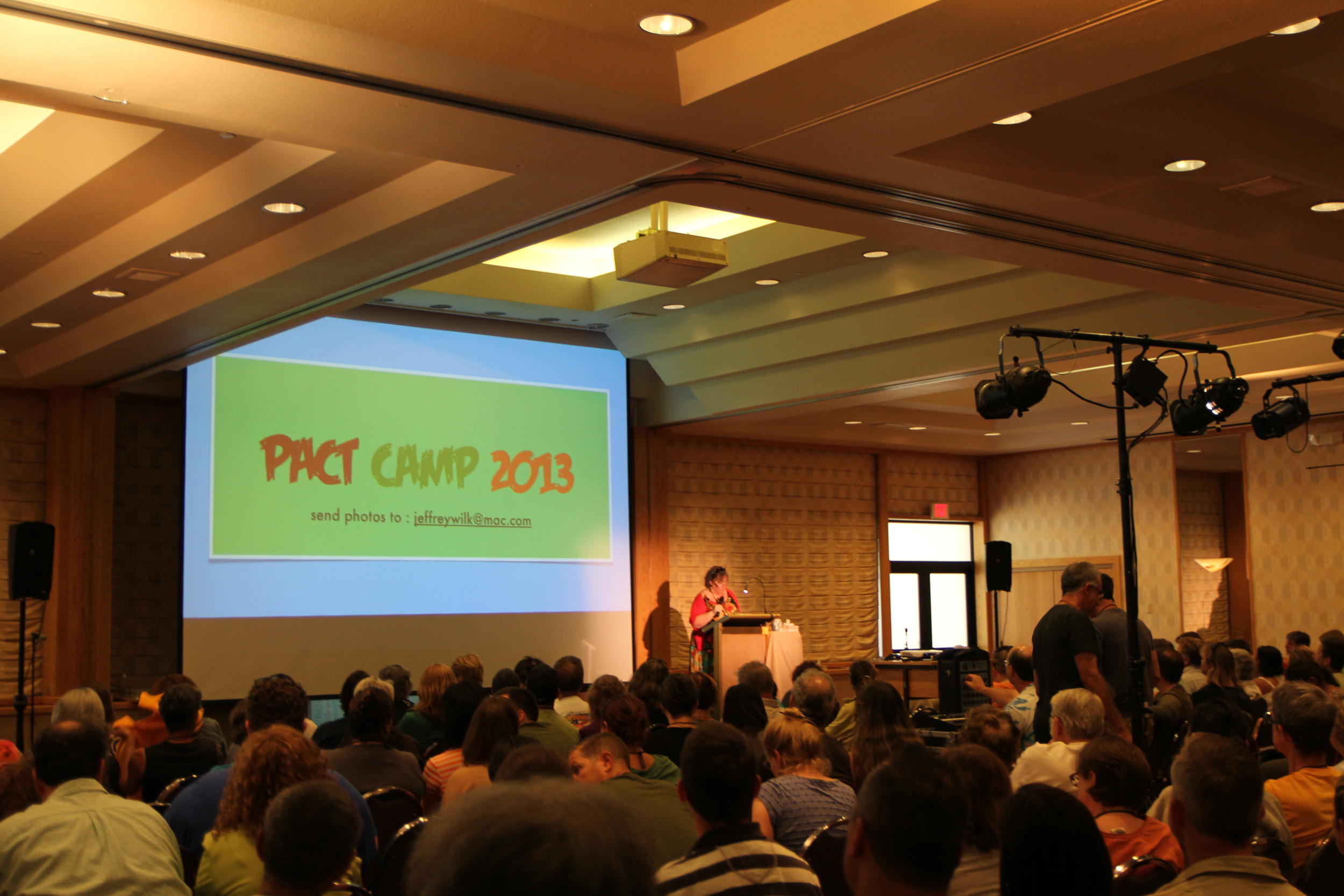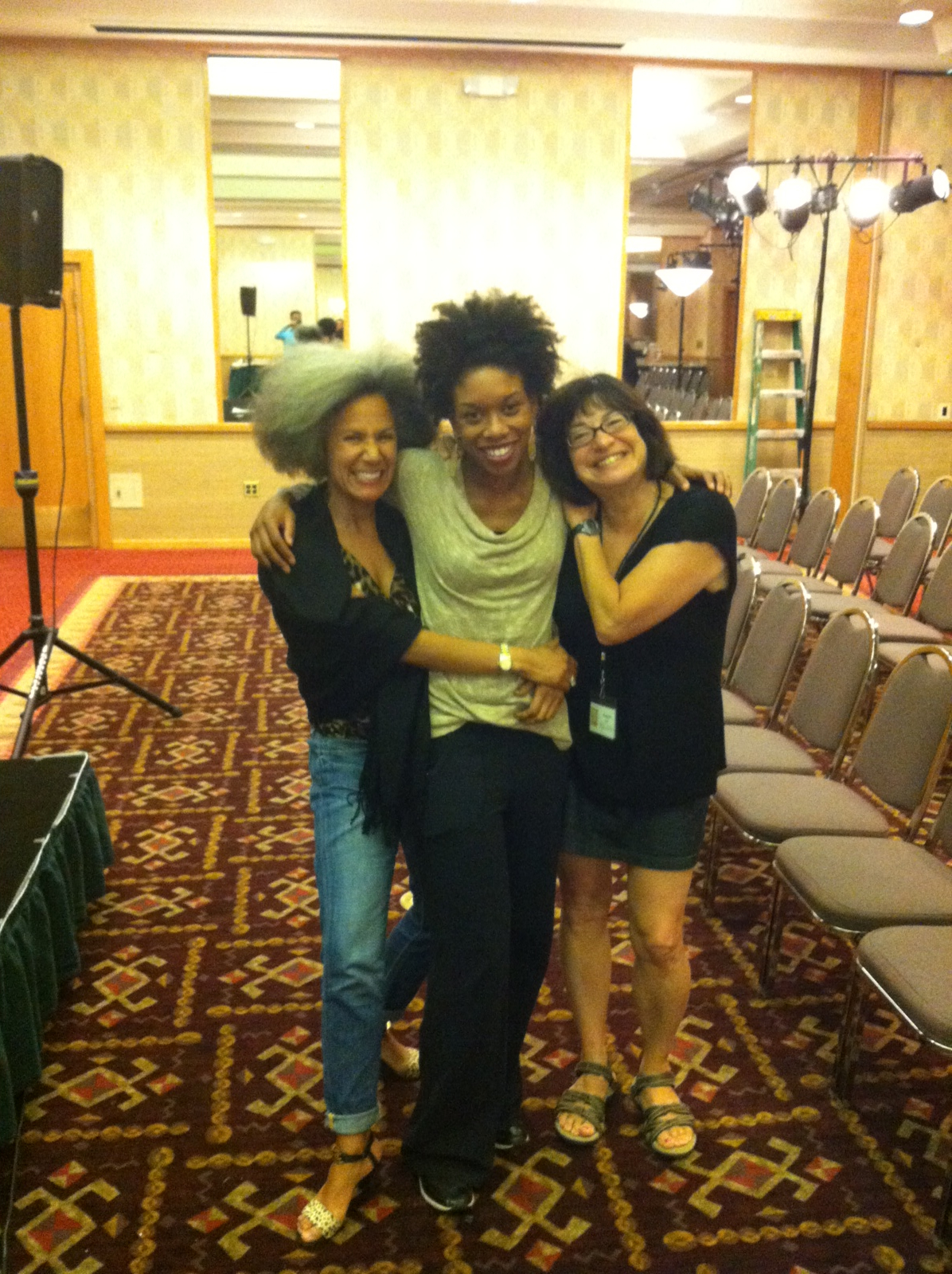Resistance to film's title - CLOSURE
/This last 4th of July weekend, Angela and I trekked 14 hours by car down to Lake Tahoe, CA, to screen Closure at the annual PACT camp. We were thrilled at the invitation to screen, and blessed by all of the caring transracial adoptive families that we met. Like our trip to the Heritage Camp in June, we were inspired by the level of commitment from the parents, as they eagerly strive to better understand what it means to be a transracial family and how to raise their children in this racially divisive country. The setting was beautiful, combined with a packed schedule of brilliant keynote speakers and workshops for the adults, engaging talk and play for the children - the overall experience was truly a pleasure for us.
We screened Closure twice in our three days at PACT, with overwhelmingly positive responses and standing ovations each time. In the Q&A after the first screening we were met with strong resistance from a few adult adoptees, voicing their deep concerns over the title; CLOSURE, and how the title was triggering to them. They speculated that other adoptees who haven’t experienced a sense of closure in their own story might also feel triggered in this way. A suggestion was made that I alter the title and other parts of the film; as the defense was “This is our story, this story is meant for adoptees.” I responded that this was not every adoptees story. Closure is the story of Angela, Deborah, Teresa, and the others who appear in the film. Closure is not intended to be reflective of every adoptee’s story. As the filmmaker my only allegiance is to those that opened up their lives to me for this story, and trusted me to tell their story as truthfully and honestly as possible, void of exploitation. Although quite surprised by the statement, I did understand where the comments were coming from. It comes from the way we all consume film – there seems to be a sort of entitlement we feel after viewing a film, often quick to project our own experiences. I'm thankful for the introspective and educated questions, as I’m sure it took courage to speak out. However, within the subtext of their questions, some bold assumptions were made: First, was that the title “Closure” is stating that Angela has in fact gained closure - nowhere in the film was this stated. The title of the film reflects what many of us hope for in our attempt to mend broken relationships, or pursue answers to questions we’ve had for years. Angela's search was for what she thought would bring closure (meeting her birth mother), but she learned it has actually created more questions. With that said, it’s hard for me to personally watch the film and not see the other “characters” experience a sense of closure in their lives as well.
In all honestly, I never expected the title to receive so much attention and response. In each of the seven Q&A’s we’ve had since April, Angela has been asked “Do you have closure?” With each screening I realize more and more how people will watch Closure and reflect on it in a deeply personal way. With that reflection, the title may bring up something positive, or trigger something negatively inside them. As the filmmaker, I’m gaining an understand that I can’t control how the film makes people feel – I had set out to merely tell the story truthfully. When given the choice between a title that is soon forgotten, and one that elicits a response from the viewer – I will gladly choose the latter.




